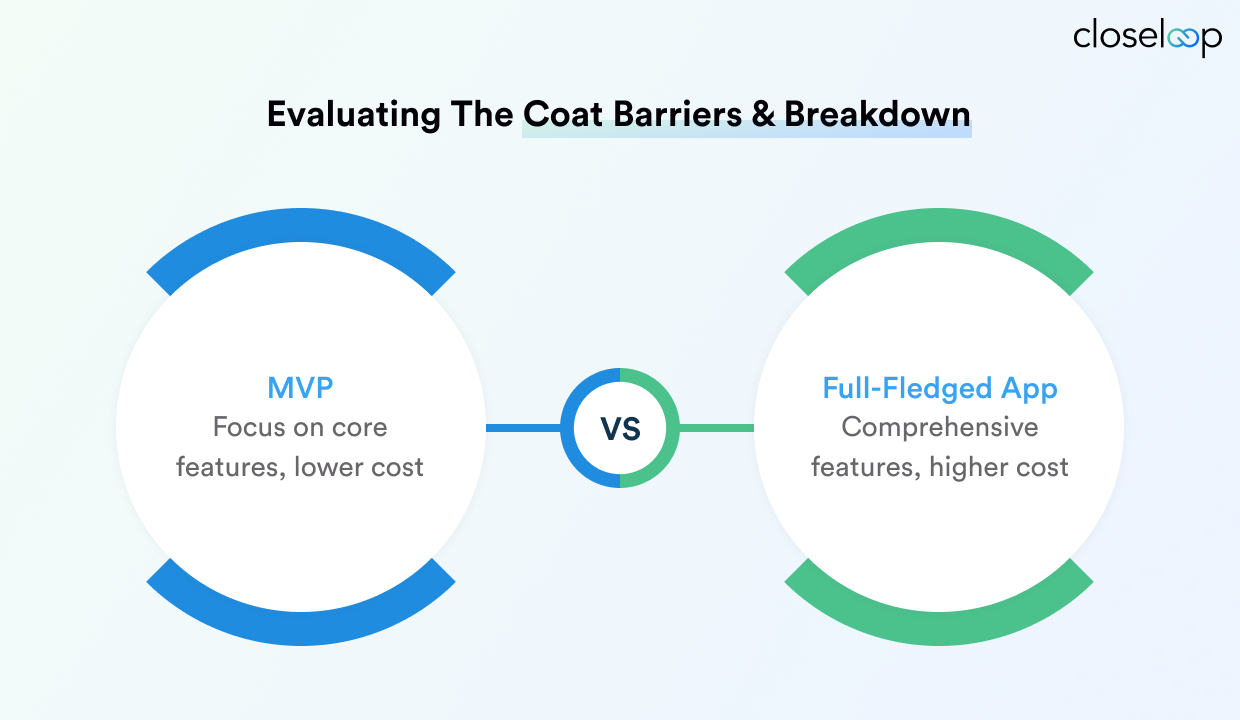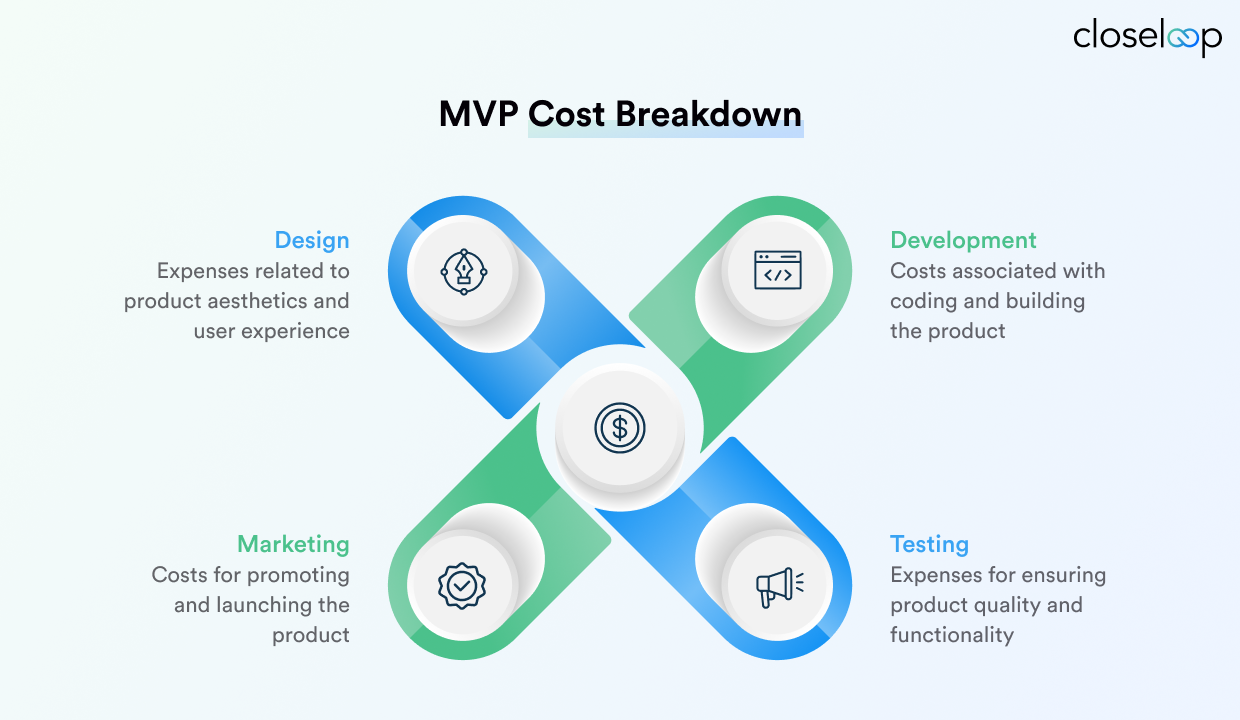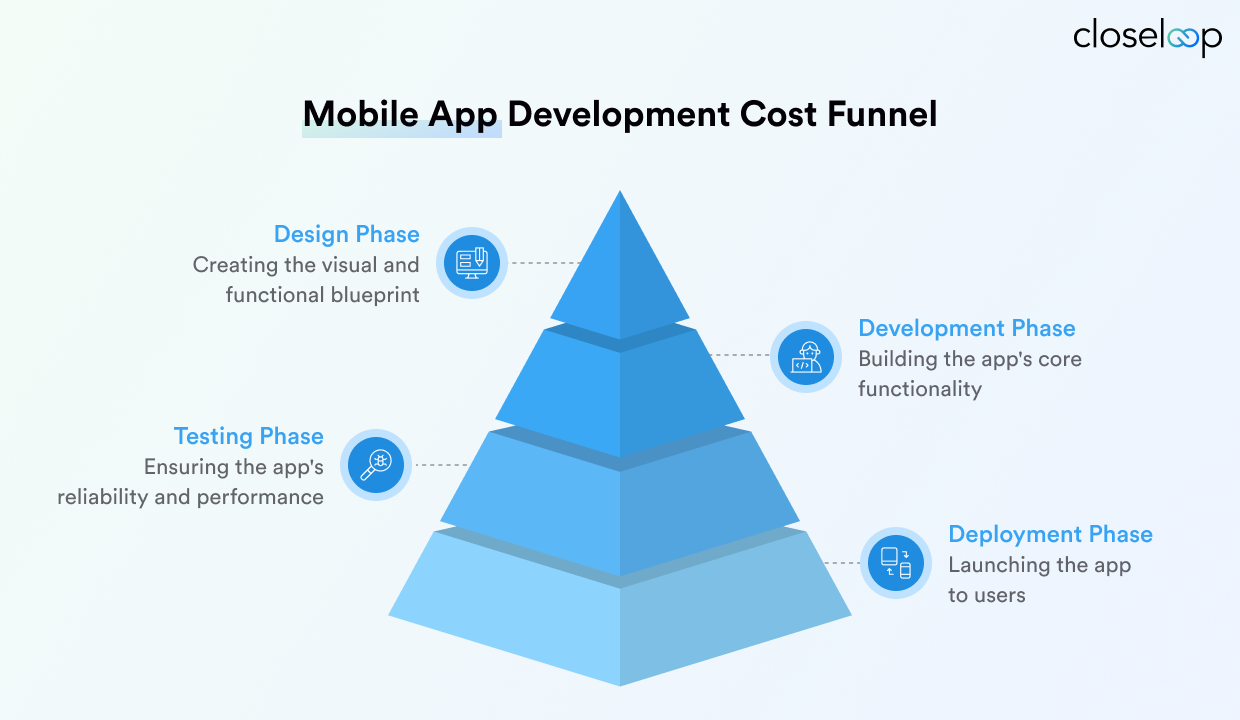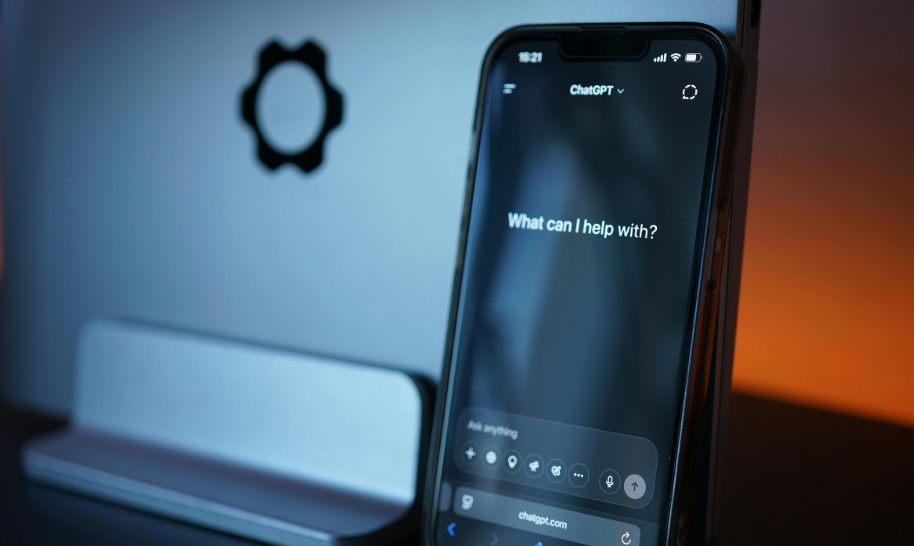
Should you build an MVP or go straight to a full-fledged mobile app? It's the million-dollar question that transforms initial excitement into budget reality checks. MVP development costs between $12,000 and $150,000, while full mobile app development ranges from $40,000 to over $400,000, depending on complexity.
The stakes are monumental. Mobile app market revenue is projected to reach $781.70 billion by 2029, and smartphone owners use 10 apps daily and 30 apps monthly. Yet here's the sobering truth: 51% of companies allocate up to $5,000 for initial concept and research, while actual development costs can be 10-80 times higher.
This isn't simply about choosing between two price points. An MVP strips your idea to core functionalities for rapid market validation, while a full-fledged app delivers comprehensive features from launch. Both approaches serve different strategic purposes, timeline constraints, and risk tolerances.
Understanding these cost implications isn't just about budgeting—it's about making informed decisions that align with your business goals, market timing, and available resources. This guide breaks down the real costs, hidden expenses, and strategic considerations that determine whether your next move should be lean validation or comprehensive launch.
Key Takeaways
-
What each approach entails: From the lean, core features of an MVP to the comprehensive functionalities of a full app.
-
Detailed cost estimates: Understand the typical budget ranges for both MVPs ($12,000 - $150,000) and full apps ($40,000 - $400,000+).
-
Factors influencing costs: Explore how choices in features, design, team, and technology stack impact your total investment.
-
Strategic benefits: Learn when an MVP is the smart choice for validating ideas and when a full app is necessary for immediate market impact.
Understanding the Fundamentals: MVP vs. Full-Fledged Mobile Application
The foundation of smart app development lies in understanding what you're actually building and why. Each approach serves distinct business objectives and comes with fundamentally different mobile app development cost structures.
What is a Minimum Viable Product (MVP)?
A Minimum Viable Product is a development strategy focused on validating a core idea, solving a primary problem, and gathering early user feedback with minimal resource investment. The concept, popularized by Eric Ries in "The Lean Startup," emphasizes learning over feature completeness.
Key Characteristics:
-
Minimal feature set: Only essential functions that solve the core problem
-
Focus on core functionality: One primary user journey executed well
-
Quick to market: Designed for rapid deployment and testing
-
Learning-oriented: Built for iteration based on real user feedback
Benefits of Starting with an MVP:
-
Reduced initial investment and risk: Lower upfront costs minimize financial exposure
-
Faster time to market: Streamlined development gets you to users quickly
-
Early user validation: Real feedback before significant investment
-
Flexibility for pivoting: Easy to change direction based on market response
Real-World Examples of Successful MVPs:
-
Dropbox: Started with a simple file sync demo video before building the full product
-
Airbnb: Basic room listings on a simple website with manual payment processing
-
Uber: Simple ride-hailing in San Francisco with basic SMS notifications
What is a Full-Fledged Mobile Application?
A full-fledged mobile application represents a complete, polished product with extensive features, robust infrastructure, and advanced UI/UX designed for comprehensive user experiences and long-term market presence.
Key Characteristics:
-
Rich feature set: Multiple user needs addressed with comprehensive functionality
-
Scalability and performance optimization: Built to handle growth from day one
-
Advanced UI/UX design: Custom animations, complex transitions, and polished branding
-
Extensive integrations: Third-party services, APIs, and system connections
-
Comprehensive testing and security: Enterprise-grade quality assurance and protection
When a Full-Fledged App is the Right Choice:
-
Validated market demand: Proven user need and market opportunity
-
Established user base: Existing customers ready for a mobile solution
-
Competitive landscape: Market requires superior product to compete effectively
-
Long-term vision with significant funding: Resources available for comprehensive development
|
Looking to develop a feature-rich mobile app that stands out, without breaking the bank or your timeline? Contact us today to discuss your vision and see how we can bring your idea to life. |
The Cost of Building an MVP: A Detailed Breakdown
MVP development costs vary significantly based on complexity, platform choices, and feature requirements. Understanding these cost drivers helps in accurate budgeting and realistic timeline planning.

Core Components Influencing MVP Cost
Platform Choice: The decision between native development for single platforms versus cross-platform solutions significantly impacts both timeline and budget.
|
Platform Strategy |
Development Time |
Cost Impact |
Pros |
Cons |
|
Single Platform (iOS) |
8-12 weeks |
Lower initial cost |
Optimized performance |
Limited market reach |
|
Single Platform (Android) |
8-12 weeks |
Lower initial cost |
Larger market share |
Fragmentation challenges |
|
Cross-Platform (React Native/Flutter) |
10-14 weeks |
Moderate cost |
Unified codebase |
Performance limitations |
Feature Set Prioritization: Successful MVPs require ruthless feature prioritization. The key is identifying the absolute minimum features needed to solve the core problem and validate the concept.
Essential MVP Features:
-
User registration and authentication
-
Core functionality specific to your value proposition
-
Basic user interface for primary user journey
-
Essential data storage and retrieval
-
Basic error handling and user feedback
UI/UX Design for MVPs: MVP design focuses on functionality and usability over elaborate aesthetics. This includes wireframing, basic prototyping, and simple but effective user interfaces.
Backend Development: MVPs typically require minimal database and server logic for core functions. Many successful MVPs leverage Backend as a Service (BaaS) solutions like Firebase or AWS Amplify to reduce development time and complexity.
Typical MVP Features and Their Cost Impact
|
Feature Category |
Time Investment |
Cost Range |
Complexity Level |
|
User Registration/Login |
20-40 hours |
$1,000-$2,000 |
Low |
|
Basic User Profile |
15-30 hours |
$750-$1,500 |
Low |
|
Core Functionality |
80-200 hours |
$4,000-$10,000 |
Medium-High |
|
Push Notifications |
25-40 hours |
$1,250-$2,000 |
Medium |
|
Basic Search/Filter |
30-60 hours |
$1,500-$3,000 |
Medium |
|
Simple Admin Panel |
40-80 hours |
$2,000-$4,000 |
Medium |
ALSO READ: Prototype vs MVP: Which One Do You Need
Estimated Cost Ranges for MVPs
Simple MVP ($12,000 - $25,000): Basic calculator apps, static content applications, or simple utility tools with minimal user interaction and no backend complexity.
Features Include:
-
3-5 screens maximum
-
Local data storage only
-
Basic UI with standard components
-
No user accounts or authentication
-
Single platform deployment
Medium Complexity MVP ($25,000 - $75,000): Simple social media feeds, basic e-commerce with limited products, or content management applications with user accounts and basic interactions.
Features Include:
-
8-15 screens
-
User authentication and profiles
-
Basic CRUD operations
-
Simple backend with database
-
Push notifications
-
Cross-platform or single platform with plans for expansion
Advanced MVP ($75,000 - $150,000): Booking applications with limited options, real-time chat for specific use cases, or marketplace platforms with complex business logic.
Features Include:
-
15-25 screens
-
Complex business logic
-
Real-time features
-
Third-party integrations
-
Advanced user management
-
Multi-platform deployment
Hidden Costs and Ongoing Considerations for MVPs
Beyond development costs, MVPs incur several ongoing expenses that impact total investment:
Initial Setup Costs:
-
Developer account fees (Apple: $99/year, Google: $25 one-time)
-
Development tools and software licenses
-
Testing devices and emulators
-
SSL certificates and domain registration
Monthly Operating Costs:
-
Server hosting and database management: $20-$500/month
-
Analytics and monitoring tools: $0-$200/month
-
Push notification services: $0-$100/month
-
Third-party API usage costs: Variable based on usage
Post-Launch Expenses:
-
Bug fixes and minor updates: 10-20% of development cost annually
-
App store optimization and marketing: $1,000-$5,000/month
-
Customer support and community management: $500-$2,000/month
The Cost of Building a Full-Fledged Mobile Application: A Deep Dive
Full-fledged applications represent comprehensive solutions with extensive features, advanced architecture, and enterprise-grade quality. These projects require significant investment but offer complete market-ready products.

Key Factors Driving Full-Fledged App Costs
Extensive Feature Set: Full applications include all "nice-to-have" features alongside core functionality, creating comprehensive user experiences that address multiple user needs and use cases.
Advanced UI/UX Design: Professional applications require custom animations, complex transitions, detailed branding guidelines, and accessibility compliance. This includes comprehensive user research, prototyping, and iterative design processes.
Robust Backend Development: Scalable architecture with complex database design, comprehensive API development, and enterprise-grade security measures. This includes load balancing, caching strategies, and performance optimization.
Third-Party Integrations: Professional applications typically integrate multiple services including payment gateways, social media APIs, mapping services, analytics platforms, CRM systems, and industry-specific tools.
Security Implementation: Enterprise-grade security including data encryption, authentication protocols, vulnerability testing, and compliance with industry standards like HIPAA, PCI DSS, or GDPR.
Comprehensive Quality Assurance: Extensive testing cycles including functional testing, performance testing, security testing, usability testing, and compatibility testing across multiple devices and platforms.
Common Full-Fledged App Features and Their Cost Impact
|
Feature Category |
Development Time |
Cost Range |
Complexity |
|
Advanced User Management |
60-120 hours |
$3,000-$6,000 |
High |
|
Payment Processing |
80-150 hours |
$4,000-$7,500 |
High |
|
Geolocation Services |
40-80 hours |
$2,000-$4,000 |
Medium |
|
Real-time Features |
100-200 hours |
$5,000-$10,000 |
High |
|
AI/ML Integration |
120-300 hours |
$6,000-$15,000 |
Very High |
|
Offline Capabilities |
80-160 hours |
$4,000-$8,000 |
High |
|
Advanced Analytics |
60-120 hours |
$3,000-$6,000 |
Medium |
|
Multi-language Support |
40-80 hours |
$2,000-$4,000 |
Medium |
Estimated Cost Ranges for Full-Fledged Apps
Medium Complexity ($40,000 - $150,000): Advanced e-commerce platforms, feature-rich social networks, or comprehensive business applications with significant backend requirements and polished user interfaces.
Features Include:
-
25-50 screens
-
Complex user management
-
Payment processing
-
Advanced search and filtering
-
Real-time notifications
-
Third-party integrations
-
Professional UI/UX design
High Complexity ($150,000 - $400,000): Ride-sharing applications, complex fintech platforms, healthcare applications, or enterprise solutions with real-time data processing and high security requirements.
Features Include:
-
50+ screens
-
Real-time data synchronization
-
Advanced security measures
-
Complex algorithms and AI integration
-
Multiple user roles and permissions
-
Extensive third-party integrations
-
Enterprise-grade infrastructure
|
Looking for inspiring app ideas? Check out these 10 top‑notch healthcare app concepts to spark innovation in your industry. |
Enterprise-Level ($400,000+): Large-scale B2B solutions, highly regulated industry applications, or platforms requiring custom integrations, dedicated infrastructure, and ongoing enterprise support.
Features Include:
-
Custom enterprise integrations
-
Regulatory compliance
-
Dedicated infrastructure
-
24/7 support and monitoring
-
Advanced security and audit trails
-
Custom reporting and analytics
-
White-label solutions
Long-Term Costs and Considerations for Full-Fledged Apps
Ongoing Maintenance (15-20% of development cost annually):
-
Regular bug fixes and performance optimization
-
OS compatibility updates
-
Security patches and vulnerability fixes
-
Server maintenance and scaling
Feature Enhancement (10-30% of development cost annually):
-
New feature development based on user feedback
-
Competitive feature additions
-
Technology stack upgrades
-
Performance improvements
Marketing and Growth (Variable):
-
User acquisition campaigns
-
App store optimization
-
Content marketing and PR
-
Customer retention programs
Direct Comparison: MVP vs. Full-Fledged App Costs & Benefits
Understanding the trade-offs between MVP and full-fledged development helps in making strategic decisions aligned with business objectives and resource constraints.
Investment and Risk Comparison
|
Factor |
MVP Approach |
Full-Fledged App |
|
Initial Investment |
$12,000 - $150,000 |
$40,000 - $400,000+ |
|
Financial Risk |
Low to Medium |
High |
|
Time to Market |
2-6 months |
6-18 months |
|
Market Validation |
Built-in validation process |
Assumes market validation |
|
Iteration Speed |
Fast and cost-effective |
Slow and expensive |
|
Feature Completeness |
Minimal but functional |
Comprehensive and polished |
Strategic Benefits Analysis
MVP Advantages:
-
Rapid market entry with minimal investment
-
Real user feedback before major investment
-
Flexibility to pivot based on market response
-
Lower risk of building unwanted features
-
Faster iteration cycles
Full-Fledged App Advantages:
-
Comprehensive user experience from launch
-
Professional market presence
-
Immediate competitive positioning
-
Complete feature set for diverse user needs
-
Higher user retention potential
Time to Market Considerations
MVP Timeline:
-
Planning and design: 2-3 weeks
-
Development: 6-16 weeks
-
Testing and deployment: 1-2 weeks
-
Total: 2-6 months
Full-Fledged App Timeline:
-
Planning and design: 4-8 weeks
-
Development: 16-52 weeks
-
Testing and deployment: 4-8 weeks
-
Total: 6-18 months
Key Factors Influencing App Development Costs
Several critical factors impact development costs regardless of whether you choose MVP or full-fledged development. Understanding these variables helps in accurate budgeting and vendor selection.
Development Team Structure & Location
Team Options and Cost Implications:
|
Team Type |
Hourly Rate Range |
Pros |
Cons |
|
Freelancers |
$15-$150/hour |
Cost-effective, flexible |
Quality variation, limited scope |
|
Small Agencies |
$50-$200/hour |
Balanced cost, dedicated team |
Limited capacity for large projects |
|
Large Agencies |
$100-$300/hour |
Full-service, proven expertise |
Higher cost, less flexibility |
|
In-House Team |
$60,000-$150,000/year |
Full control, deep product knowledge |
High overhead, recruitment challenges |
ALSO READ: Freelancer vs App Agency for app development
Geographic Location Impact:
|
Region |
Average Hourly Rate |
Quality Level |
Communication |
|
North America |
$100-$250/hour |
High |
Excellent |
|
Western Europe |
$80-$200/hour |
High |
Excellent |
|
Eastern Europe |
$40-$100/hour |
High |
Good |
|
Asia (India, Philippines) |
$15-$60/hour |
Variable |
Good |
|
Latin America |
$30-$80/hour |
Medium-High |
Good |
Technology Stack Considerations
Platform Development Approaches:
-
iOS (Swift): Higher performance, platform-specific features, but requires separate Android development
-
Android (Kotlin): Larger market reach, but device fragmentation challenges
-
Cost Impact: 40-60% higher than cross-platform for multi-platform launch
Cross-Platform App Development:
-
React Native: Faster development, shared codebase, but potential performance limitations
-
Flutter: Google's framework with excellent performance, growing ecosystem
-
Cost Impact: 20-40% cost savings for multi-platform development
Backend Technologies:
-
Node.js: Fast development, JavaScript ecosystem, good for real-time features
-
Python/Django: Robust, scalable, excellent for data-heavy applications
-
Ruby on Rails: Rapid development, great for MVPs and startups
-
Java/Spring: Enterprise-grade, highly scalable, longer development time
UI/UX Design Complexity
Design Process Stages:
-
User Research and Strategy: $5,000-$15,000
-
Wireframing and Prototyping: $3,000-$10,000
-
Visual Design and Branding: $8,000-$25,000
-
Animation and Micro-interactions: $5,000-$15,000
-
User Testing and Iteration: $3,000-$10,000
Design Complexity Levels:
-
Basic: Standard UI components, minimal customization
-
Intermediate: Custom components, brand-specific design
-
Advanced: Complex animations, innovative interactions
-
Premium: Award-winning design, extensive user research
Third-Party API Integrations
Common Integration Costs:
|
Integration Type |
Implementation Time |
Cost Range |
|
Payment Gateways |
20-60 hours |
$1,000-$3,000 |
|
Social Media Login |
15-30 hours |
$750-$1,500 |
|
Maps and Location |
25-50 hours |
$1,250-$2,500 |
|
Push Notifications |
20-40 hours |
$1,000-$2,000 |
|
Analytics Integration |
10-25 hours |
$500-$1,250 |
|
Email/SMS Services |
15-35 hours |
$750-$1,750 |
When to Choose Which Approach: A Strategic Decision
The choice between MVP and full-fledged development should align with your business objectives, available resources, and market conditions. Each approach serves different strategic purposes.
Opt for an MVP if:
Market Validation Needed: You have an innovative idea but need to validate market demand before significant investment. MVPs allow you to test core assumptions with minimal risk.
Limited Budget: When resources are constrained, MVPs provide a path to market entry and potential revenue generation that can fund future development.
Rapid Market Entry: In fast-moving markets, getting to users quickly with a functional solution often matters more than feature completeness.
Uncertain Market Conditions: When entering new or highly uncertain markets, MVPs provide flexibility to pivot based on user feedback and market response.
Investor Validation: Many investors prefer to see market validation through an MVP before committing to larger funding rounds for full development.
Go for a Full-Fledged App if:
Validated Market Demand: When you have proven user need through market research, existing customer base, or successful web platform.
Substantial Funding Available: With adequate resources, full development can provide competitive advantages and comprehensive user experiences.
Competitive Market Requirements: In saturated markets, users expect polished, feature-rich experiences from day one.
Existing Business Expansion: When extending successful existing businesses into mobile, full-fledged apps can leverage existing user bases and business models.
Enterprise or B2B Solutions: Business customers often require comprehensive functionality and professional presentation from initial deployment.
Tips for Optimizing App Development Costs
Effective cost optimization requires strategic planning, smart technology choices, and disciplined project management throughout the development process.
Infographic
Strategic Cost Optimization
Prioritize Features Ruthlessly:
-
Use the MoSCoW method (Must have, Should have, Could have, Won't have)
-
Focus on features that directly support your core value proposition
-
Avoid feature creep by maintaining strict scope discipline
Start with Clear and Detailed Scope:
-
Invest in comprehensive planning and requirements documentation
-
Use wireframes and prototypes to clarify functionality
-
Establish change management processes to control scope expansion
Choose the Right Development Partner:
-
Balance cost, quality, and communication capabilities
-
Evaluate portfolios and references carefully
-
Consider long-term partnership potential beyond initial development
Technical Cost Optimization
Consider Cross-Platform Development for MVPs:
-
React Native or Flutter can reduce development time by 30-40%
-
Shared codebase simplifies maintenance and updates
-
Faster time to market for multi-platform launch
Leverage Existing Solutions and APIs:
-
Use established services for payments, authentication, and notifications
-
Avoid rebuilding common functionality from scratch
-
Consider Backend as a Service (BaaS) solutions for MVPs
Invest in Good UI/UX Early:
-
Well-designed interfaces reduce development time and user support costs
-
Early user testing prevents costly redesigns later
-
Consistent design systems accelerate development
Process Optimization
Emphasize Thorough Testing:
-
Automated testing reduces long-term maintenance costs
-
Early bug detection prevents expensive fixes later
-
Comprehensive QA improves user satisfaction and retention
Plan for Iteration from Day One:
-
Embrace agile methodologies for flexibility
-
Build feedback loops into development process
-
Design architecture for easy feature additions
The Closeloop Advantage: Bridging the Gap
At Closeloop, we understand that the MVP vs. full-fledged app decision isn't just about budget—it's about finding the right balance between speed, quality, and strategic objectives. As a leading mobile app development agency in California, we've developed an approach that combines the agility of specialized talent with the reliability and quality assurance of an established development partner.
Our hybrid model gives you access to both full-time specialists and carefully vetted experts who collaborate seamlessly on your project. This structure allows us to offer competitive pricing while ensuring comprehensive coverage of all technical requirements, from cutting-edge AI integration to complex backend development and sophisticated UI/UX design.
End-to-End Excellence
Our services span the complete mobile app development process, providing strategic guidance that goes beyond technical implementation:
Strategic Planning: We help you understand not just what you can build, but what you should build to achieve your business objectives. Our team works with you to define the optimal approach—whether that's a lean MVP for market validation or a comprehensive solution for immediate market impact.
Technical Architecture: Our senior architects design scalable, maintainable systems that grow with your business. We consider future requirements from day one, ensuring your technology foundation supports long-term success.
Full-Stack Development: Whether you need native iOS app development and Android app development, cross-platform solutions, or robust backend systems, our team has the expertise to deliver high-quality results on time and within budget.
Quality Assurance: Our comprehensive testing processes ensure your app performs flawlessly across all devices and scenarios. We catch issues early, reducing costs and accelerating time to market.
Post-Launch Support: Ongoing maintenance, updates, and feature enhancements keep your app competitive and ensure long-term success in the market.
Transparent Pricing and Process
We believe in transparent pricing that aligns with your business objectives. Our project estimates include detailed breakdowns of costs, timelines, and deliverables, helping you make informed decisions about scope and budget optimization.
Our development process combines agile methodologies with rigorous project management, providing regular visibility into progress, clear communication channels, and structured feedback opportunities throughout the development cycle.
Industry Expertise
Our team brings deep experience across multiple industries, including healthcare, fintech, e-commerce, and enterprise applications. We understand the unique challenges and requirements of each sector, allowing us to provide strategic guidance that considers regulatory requirements, industry standards, and user expectations.
Whether you're building a HIPAA-compliant healthcare app, a secure financial platform, or a scalable e-commerce solution, we have the expertise to deliver solutions that meet industry standards and exceed user expectations.
Conclusion: Making an Informed Decision for Your Mobile App
The choice between MVP and full-fledged mobile app development isn't just about budget—it's about aligning your development approach with your business goals, market conditions, and strategic objectives. Understanding the cost implications, benefits, and trade-offs of each approach enables you to make decisions that maximize return on investment and minimize risk.
MVPs offer a lean, agile path to market validation with lower upfront investment and faster iteration cycles. They're ideal for testing new ideas, entering uncertain markets, and building user bases before significant investment. Full-fledged applications provide comprehensive user experiences and professional market presence but require substantial investment and longer development timelines.
The key to successful app development lies not in choosing the most expensive option, but in spending wisely to achieve your specific objectives. Whether you start with an MVP and scale based on user feedback or invest in comprehensive development from the beginning, success depends on clear strategic thinking, disciplined execution, and continuous focus on user value.
At Closeloop, we've seen that the most successful apps aren't necessarily the most feature-rich—they're the ones that deliver exceptional value to users while supporting sustainable business growth. Your mobile app represents more than a technical project—it's a strategic investment in your business future. Choose the approach that aligns with your vision, resources, and market opportunity, and partner with a development team that understands both the technical complexities and business implications of your decision.
Need help deciding between an MVP or full app? Connect with us for a quick cost and feasibility assessment.
Stay abreast of what's trending in the world of technology
Cost Breakdown to Build a Custom Logistics Software: Complete Guide
Global logistics is transforming faster than ever. Real-time visibility, automation, and AI...
Logistics Software Development Guide: Types, Features, Industry Solutions & Benefits
The logistics and transportation industry is evolving faster than ever. It’s no longer...
From Hurdle to Success: Conquering the Top 5 Cloud Adoption Challenges
Cloud adoption continues to accelerate across enterprises, yet significant barriers persist....
Gen AI for HR: Scaling Impact and Redefining the Workplace
The human resources landscape stands at a critical inflection point. Generative AI in HR has...




